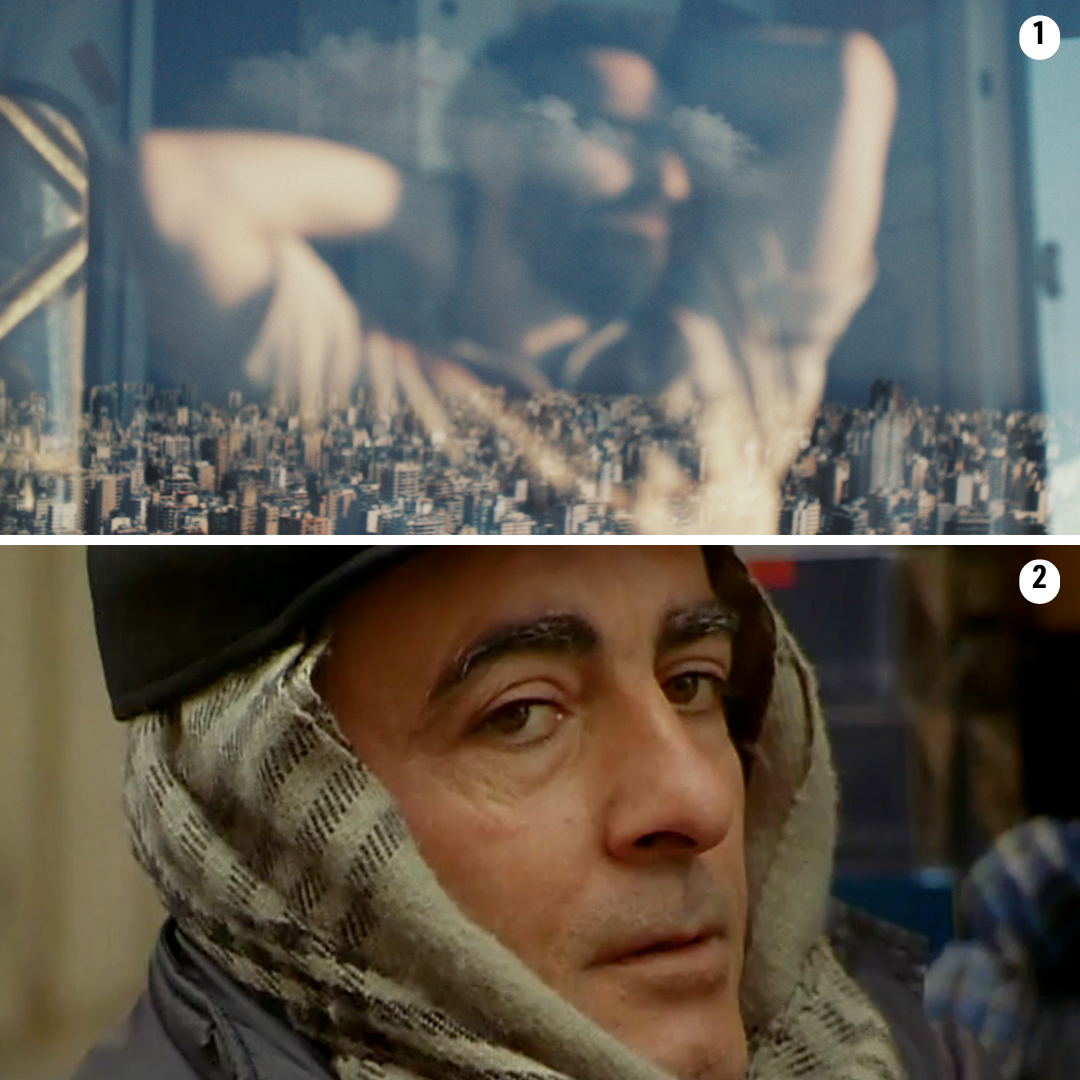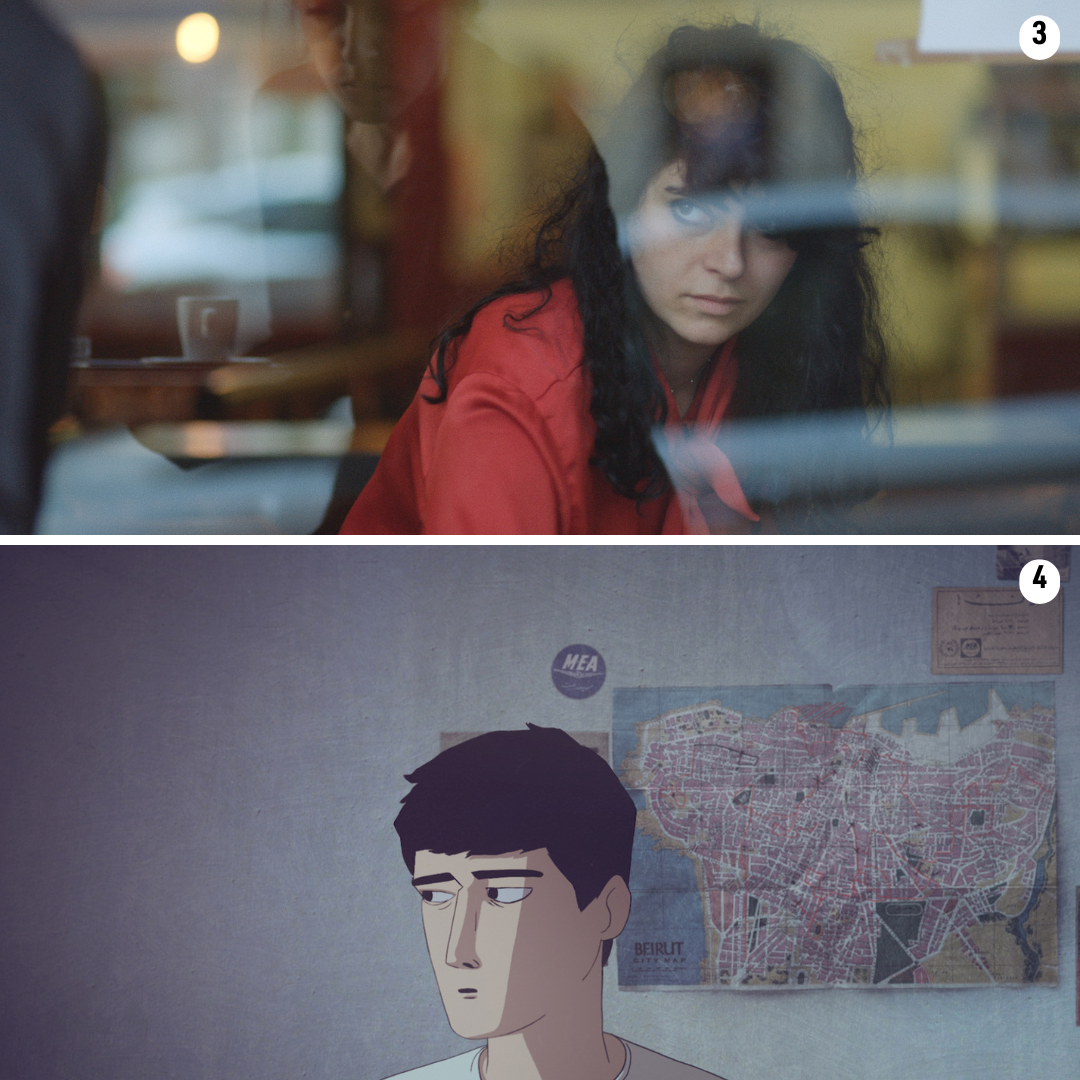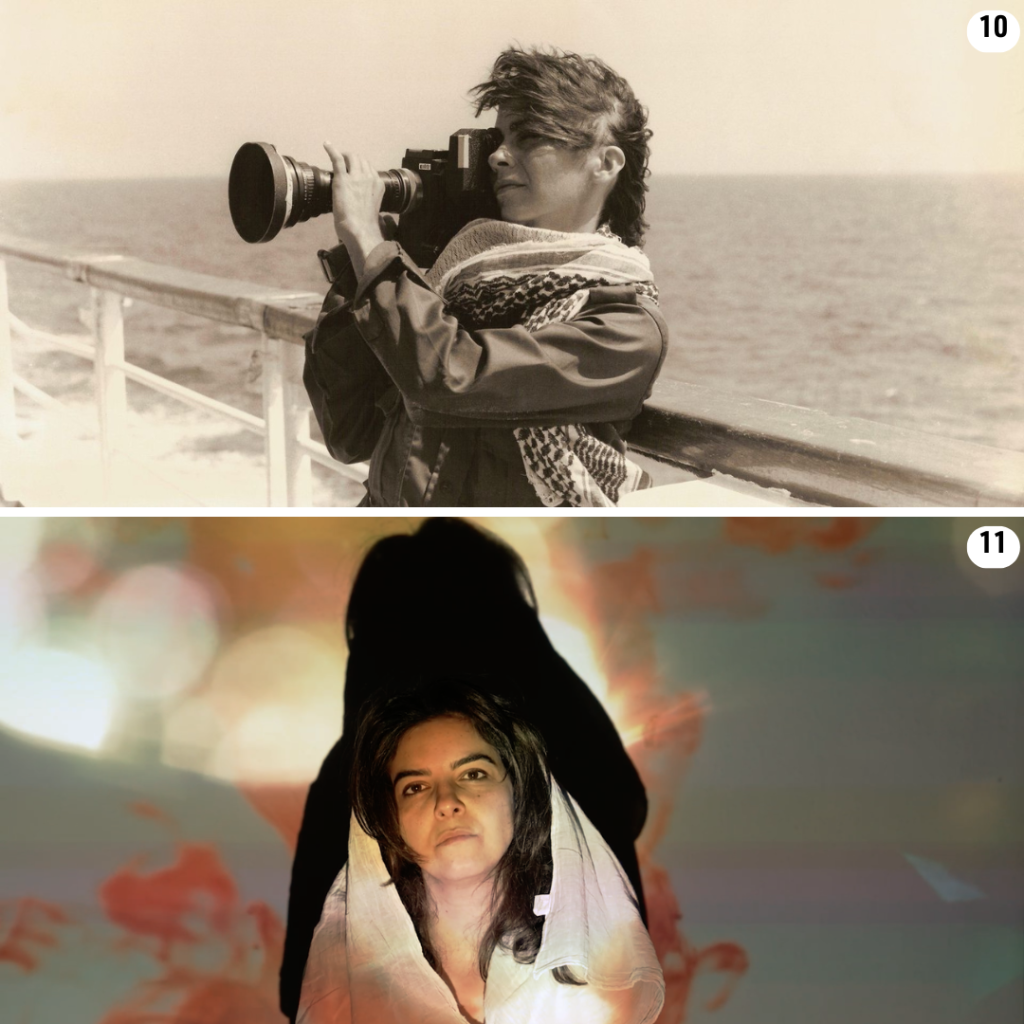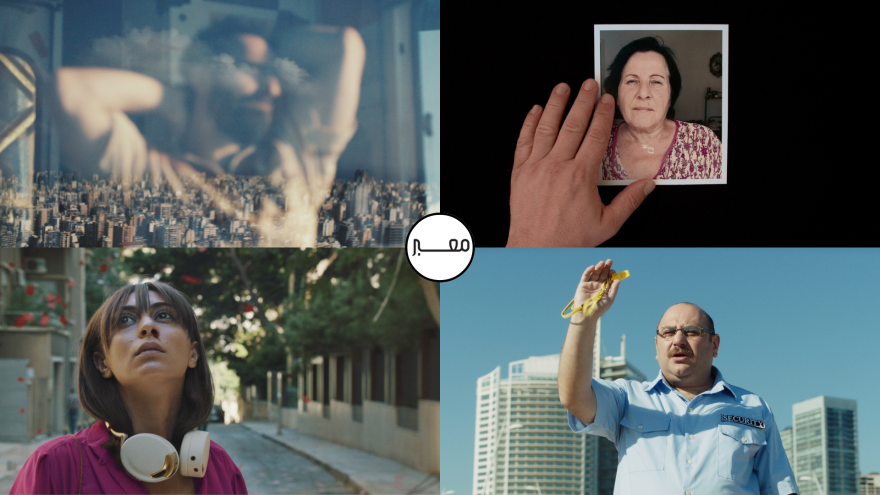2025 Panorama: geographical focus
Maabar* – A journey across new Lebanese cinema
Welcome to the land of honey and incense, whose history marked by turmoil is difficult to summarize here. Lebanon saw the thawra (revolution) in 2019, the COVID-19 pandemic, the explosion at the port of Beirut in August 2020, and a new offensive of the Israeli army in 2024. Sites of production were swept up, the Lebanese pound lost 95% of its value, with 82% of the population living under the poverty line. Faced with these circumstances, Lebanese artists persevere and reinvent themselves in spite of the obstacles. For a country half the size of Wales in the UK, smaller than the state of Connecticut in the US, (10,452 km2), filmmaking in Lebanon has flourished remarkably over the past few years. The number of filmmakers is growing, each one shaped by their own experiences and references. This has produced a blend of genres and styles from a cosmopolitan country where ideas and cultures intermingle, where international co-productions and the multiple identities of directors–often jostled between two countries—become elements which foster creativity.

Three Focus programs demonstrate this vitality, offering new ideas for how to make and share films, and especially how to reconnect with lost spaces.
Shot almost entirely over the last decade, many of these projects are spearheaded by women. For example, Dania Bdeir and her film Warsha (photo 1) bowled the festival over in 2021. Her short, also awarded at Sundance, highlights the difficulties of a Syrian migrant in the heights of Beirut. Hung from a towering crane, he is at last free.
In this uncertain context, the young generation of filmmakers that does not resort to exile instead resorts to inexpensive techniques such as video. This is how an entire culture of video art, at the crossroads of experimental film and documentary film, has taken root in Lebanon. Artists like Wael Noureddine explore this approach. With films like Ça sera beau – From Beirut with Love (photo 2), he makes use of kinetic editing, calligraphic collage, and musical mosaic to serve his heroic conception of film, “A camera is dangerous, when one makes images, one makes them for ‘eternity,’ it is a responsibility to make images.” With Pasolini at heart and F.J. Ossang on the soundtrack, the film radiates and resonates painfully with current events.
New to the festival, Les Chenilles (photo 3) by sisters Michelle et Noel Keserwany, won he Golden Bear for short film at Berlinale in 2023. Inspired by the difficult work conditions of women in French silk factories of the 19th century in the Levant, in particular on Mount Lebanon, the Keserwanys create a contemporary history that also addresses the question of emigration.
Ely Dagher won the Palme d’Or at Cannes in 2015 with his short film Waves ’98 (photo 4). In 1998, the Lebanese capital is filled with hope. Eight years after the civil war, it tries to rebuild itself with its inhabitants and its youth by closing over its injuries and its fractures. But a decade later, optimism seems to have sunk, urban problems multiply, the poor state of the buildings and constant instability gnaw at Beirut. Filmmaker Ely Dagher grew up in this context, oscillating between the incurable weariness and the profound love he has for his city. Screening for the first time in Clermont-Ferrand, his film uses a particularly beautiful animation technique, blending pure drawing and still photography. The director presents a touching homage to his city, so hated and yet so loved.


The lives of Maki, an Ethiopian woman, a suicidal immigrant worker, and Zorro, an unemployed actress, cross paths when a diamond-trafficking operation in Beirut goes wrong. With an explosive cast and fast-paced directing, Maki & Zorro (photo 5) is an action film that astonishes. The playfulness and rhythm that Rami Kodeih, the film’s director, breathes into the film, will keep audiences glued to their seats.
Just like White Noise (photo 6), we remain close to a genre film: Said is on his first shift as a night security guard under a large bridge in Beirut. Between local gang leaders and a suicidal vagabond, equipped only with a walkie-talkie and a flashlight, he tries to perform his duties seriously. By sunrise, the city will have swallowed him. Co-directed by Lucie La Chimia & Ahmad Ghossein, this film had a great festival career.
A fourth program is entirely dedicated to a friend of the festival: Wissam Charaf, whose films were presented in competitions and awarded several times in Clermont-Ferrand. He was a jury member of the National competition in 2020. His film, If the Sun Drowned Into an Ocean of Clouds, won the National jury’s Special Prize during last year’s festival. A self-taught filmmaker, Wissam has a background in journalism and is used to shooting quickly. His shorts paint a portrait of a Lebanon filled with poetry and hemmed with an absurdist and minimalist humor in the style of Kaurismäki.


Thanks to Oiseaux-Tempête, we had the chance to meet activists and artists who decided that creation and action should win over and open a happier chapter for the country, in Khamsin, by Grégoire Orio & Grégoire Couvert, presented in our Decibels! program in 2020. We invite you to check out this consequential music in the Decibels program, entirely dedicated to Lebanon. There we’ll find Nadim Tabet, who reunites in Enfin la nuit (photo 7) the two authoritative figures of the Lebanese music scene: Fadi Tabbal et Charbel Haber. The film pays homage to the mythical club AHM, the four pieces of Enfin la nuit accompany the images of a Beiruti youth that was dancing still, one month before the explosions, in the euphoria of festive nights. A pure jewel rendered sublime by Vincent Moon’s images, Nâr deploys its curls at the first rays of daylight at the very top of the Mkaless building, the beating heart of Beirut’s independent music scene (photo 8). Filmmaker Jessy Mousallem films agricultural workers in the Bekaa valley and plain. Her Heart of Sky (photo 9) has a familiarity with the music videos of The Blaze, blending the electronic music of Damian Lazarus & The Ancient Moon with masterful directing.
A Collections program is devoted to the most important filmmaking voice of this period: Jocelyne Saab (photo 10). Being born into the Beiruti Christian bourgeoisie did not prevent Jocelyn Saab from becoming an unrelenting leftist activist. Her trilogy on Beirut tells the story of “her” war in heart-wrenching documentaries. Fragments of the past rise to the surface thanks to her creative force. As is often the case, women are key in retrieving memory as a tool of analysis and a step forward in an acceptance of an impossible resilience. A second Collection program, Letters (photo 11), formidably captures a tumultuous Lebanon in 2024, with the war in Gaza as the backdrop. The film connects 18 filmmakers who transform personal narratives into cinematographic reflections, weaving a mosaic of resilience and creativity in the midst of regional and international changes. This collaborative film project initiated by Josef Khallouf brings together these Lebanese filmmakers from different horizons. The initiative begins with each participant writing to a letter to respond to the question, “What do you feel at this very moment?”

Lebanese cinema is soaring. But History does not seem to wish to grant it any respite…
*Passage










